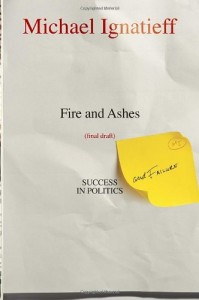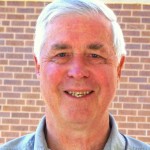
I admit to a lifelong fascination with the people and territory of that land just north of the United States. I first drove through Alberta and the Yukon in 1952, on my way to Alaska, and then sailed up the St. Lawrence River on a Navy cruiser to Quebec City in 1954. Since then I’ve spent considerable time in Vancouver, Calgary, Toronto, Ottawa, Montreal and Quebec, with side excursions to Victoria, Banff, Edmonton, Trenton, and Beaconsfield. So it was only natural to buy an early copy of Michael Ignatieff’s description of his six-year foray into Canadian politics.
Who can ignore this description of Canada: “ten provinces and three territories strung out like birds on the wire of the forty-ninth parallel?” And its political uniqueness: “ . . . the fact that we didn’t have capital punishment or a right to bear arms; that we believed in group rights to protect the French language and aboriginal title to land; the fact that we believed a woman’s right to choose should prevail; the fact that a bilingual national experiment, always under stress, forced us constantly, as a condition of survival, to try and understand each other and reach common ground.”
Ignatieff first ran for Parliament in 2005, resigning a professorial chair at Harvard and returning to the land of his birth after many years abroad. He later became the leader of Canada’s Liberal Party, one with which his family had early close connections, only to lose a national election in 2011. The book is his analysis of those years and the nature of politics in a democracy. He concludes with a “renewed respect for politicians as a breed and with reinvigorated faith in the good sense of citizens,” and “ . . . what is right about the democratic ideal: the faith, constantly tested, that ordinary men and women can rightly choose those who govern in their name, and that those they choose can govern with justice and compassion.”
But how can mere mortals stand for leadership positions? “Politics tests your capacity for self-knowledge more than any profession I know,” Ignatieff says, going on to offer “self-dramatization is the essence of politics,” playing on a perpetual stage. He also urges development of listening skills: “listening, being deeply able to deeply listen to your fellow citizens, is the most under-rated skill in politics.” And “standing” is equally important: “When you first enter politics, your first job is to secure your standing, the authority to make your case and ensure a hearing.” That is especially true for newcomers, who will certainly be attacked for their “lack of experience.”
He also argues for civility in political life, something all too lacking recently. But is it possible to treat someone, civilly, as an “adversary” when that person treats you as an “enemy?”
The “virtues” of successful politics include “adaptability, cunning, rapid-fire recognition of Fortuna, the keen intuition that a situation has changed and that what was true is no longer so, together with the noble capacity to lead, to charm, to inspire.” Politics is then “the baffling combination of will and chance that determines the shape of life.”
I now know something more about my Canadian friends and their country. Oh, Canada!
Editor’s Note: Michael Ignatieff’s ‘Fire and Ashes’ is published by Harvard University Press, Cambridge 2013

About the author: Felix Kloman is a sailor, rower, husband, father, grandfather, retired management consultant and, above all, a curious reader and writer. He’s explored how we as human beings and organizations respond to ever-present uncertainty in two books, ‘Mumpsimus Revisited’ (2005) and ‘The Fantods of Risk’ (2008). A 20-year resident of Lyme, he now writes book reviews, mostly of non-fiction that explores our minds, our behavior, our politics and our history. But he does throw in a novel here and there. For more than 50 years, he’s put together the 17 syllables that comprise haiku, the traditional Japanese poetry, and now serves as the self-appointed “poet laureate” of Ashlawn Farms Coffee, where he may be seen on Friday mornings. His wife, Ann, is also a writer, but of mystery novels, all of which begin in a bubbling village in midcoast Maine, strangely reminiscent of the town she and her husband visit every summer.